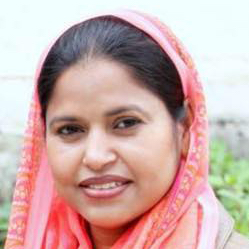Opinion
Yesterday’s impunity is today’s impunity
The recently held conference on impunity has shown that South Asia stands together against human rights abuses
Mohna Ansari
Last week Nepal’s National Human Rights Commission (NHRC) hosted the largest high-level meet for human rights institutions of South Asia. Perhaps the symbolic aspect of this meeting was that the seven national human rights commissions took only just over an hour to agree on a five-page Kathmandu Declaration.
Our nations face many different challenges, but the conference showed that we, in South Asia, share common goals and the same set of basic principles of universal rights when we set out to find solutions. The level of unity, including in the condemnation of the repression of the Rohingyas in Myanmar, was impressive for those of us who tend to associate regional discussions with discord over national interests.
Whether in Afghanistan or Maldives, Bangladesh or Pakistan, India or Nepal, people are often denied justice, linked more often than not with the central issue of the conference, impunity. The participants, which included the leading rights-related NGOs of the region, emphasised that impunity reflects a deficit in the rule of law. All citizens (including women, children, minority groups and marginalised communities) are accountable to the justice system equally and without discrimination, and all must have equal access to it.
Rebuilding trust The organisations underscored their support for the vetting of all personnel in security forces that are seeking promotions or intending to take part in UN peacekeeping missions, so as to exclude those facing human rights cases. This was done not in the spirit of revenge or harsh punishment, but to find ways in which the citizenry’s confidence in the institutions of justice can be rebuilt—a key step for building social harmony and instituting the political stability that we need for prosperity.
In the session on Transitional Justice, there was consensus around full consultation with victims’ groups in the process from the start, and the need to see that all four pillars—truth, reparations, justice and reforms—are fulfilled to ensure that the crisis is not repeated. There can be little doubt that institutions which in times of crisis have been used for repression need profound reforms to instil new habits and methodologies. Investigating without the use of torture being one of them.
This was perhaps the most moving part of the three-day event. Not only did the session look at the general principles, but also explored in depth Nepal’s own peace process and transitional justice, which remains mired in problems over capacity.
It was reassuring to hear Attorney General (AG) Agni Kharel commit to amending the transitional justice commissions’ flawed mandate and working with victims’ groups and civil society. But it was clear that there are still big differences in approach and vision. Getting the mandate of the commissions to comply with the 2015 Supreme Court ruling and basic standards is only the beginning.
The TRC and CIEDP were castigated by victims for appearing to lack political will and their inability to create a realistic work plan. As a victim leader put it, he has been waiting for sixteen years to find out what transpired when his father was murdered, yet in three years the TRC has failed to clarify even one of the 60,000 complaints it has received. There is a sense that more has to be done to end the dysfunction of the commissions before the international community can be expected to give its stamp of approval and release funds that the AG has demanded.
No excuse for rights abuses
The Kathmandu Declaration also calls on all South Asian states to review national security and counter-terrorism laws and to ensure that they meet international norms and standards. While the declaration recognises the inalienable right of states to call a state of emergency when national security is genuinely in peril, it states categorically that under no circumstances can the use of torture or attacks on the right to life and the protection of civilians be justified. All the signatories to this document committed to remain vigilant to any attempts to improperly use national security as a justification for illegitimate restriction of rights that in no circumstances can be suspended.
The conference discussed at length the issue of migration and stressed the importance of the right of freedom of movement, including in search of employment. While recognising the economic benefits of migrant labour and the contribution of remittances to the economies of the region, it is increasingly clear that those who migrate for employment, particularly women, are frequently subject to serious abuses including under the kafala system. The signatories therefore called on governments to collectively negotiate for migrant rights, including minimum wageThe commissioners agreed on the need to reach out to civil society and to end the crackdown on dissent and speech. They also agreed to promote measures to defend the judiciary and police from political influence and maintain their independence.
For the NHRC, and the Nepali organisations who took part, the conference was a real boost, a reassurance that we are not alone in the values we share and the demands we are making—including that governments act on the recommendations. The fact that the event was opened by President Bidya Bhandari and brought to a close by Law Minister Sher Bahadur Tamang (on behalf of Prime Minister KP Oli) is a cause for optimism that our voice is being heard. We stand ready to help the government to meet the noble commitments it has made: to turn their words into actions.
We restart our efforts strengthened by the solidarity that was shown by these powerful and influential rights organisations from our neighbourhood.
Ansari is commissioner/spokesperson of the National Human Rights Commission of Nepal




 9.6°C Kathmandu
9.6°C Kathmandu










